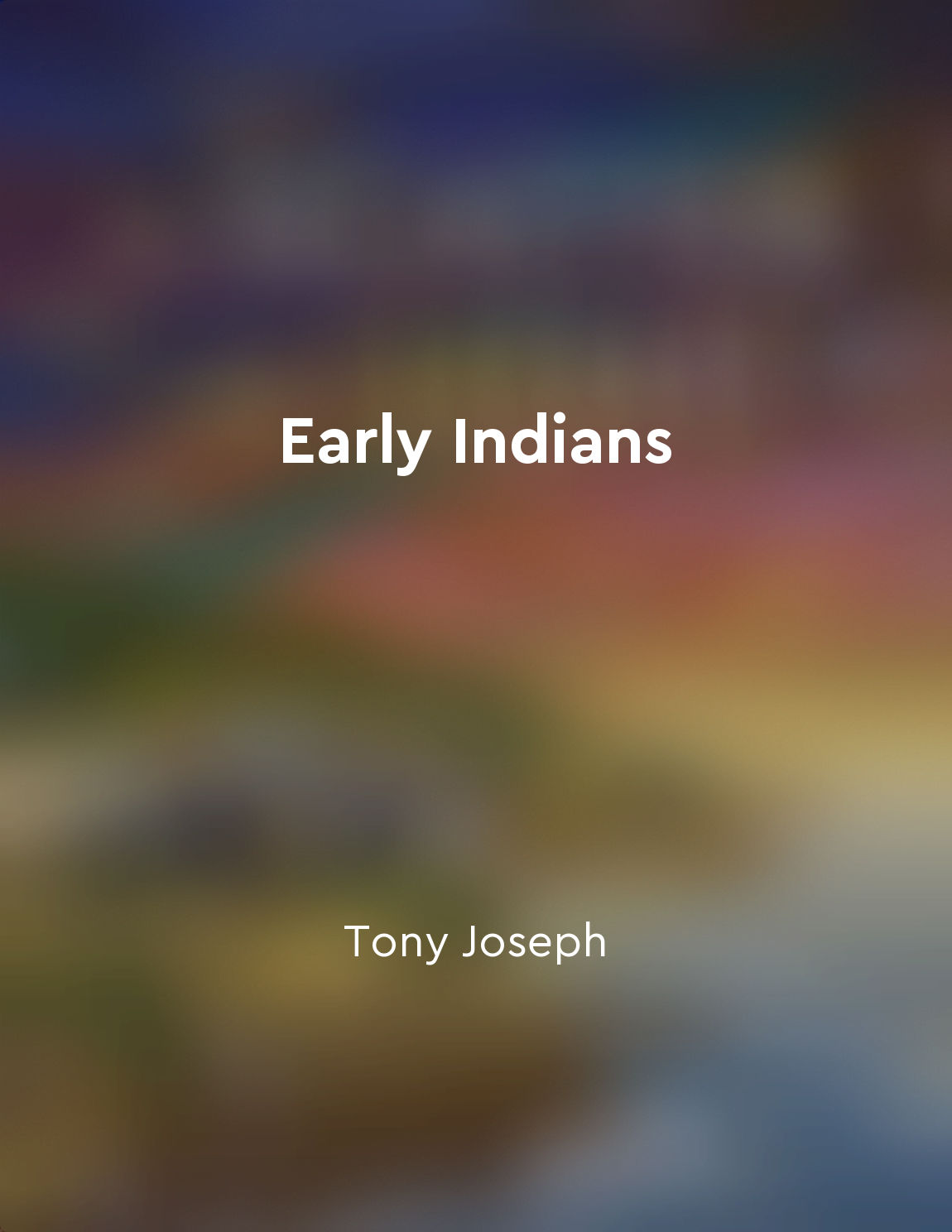Prehistoric Indians interacted with neighboring regions from "summary" of Early Indians by Tony Joseph
Prehistoric Indians did not live in isolation. They had interactions with neighboring regions that were crucial for their development. This interaction was not limited to just the exchange of goods or ideas; it also had a significant impact on their cultural practices and social structures. The spread of agriculture in the Indian subcontinent is a prime example of this interaction. It is believed that agriculture was introduced to the region by migrants from the neighboring regions. These migrants brought with them new crops and farming techniques that revolutionized the way people lived in the subcontinent. This exchange of agricultural knowledge led to the rise of settled societies and the growth of population in the region. Another aspect of interaction with neighboring regions was the movement of people. There is evidence to suggest that there was a constant flow of people between the Indian subcontinent and regions like Central Asia and West Asia. This movement of people led to the mixing of different populations and the exchange of languages and customs. It also played a crucial role in the spread of technology and ideas across different regions. Trade was also an important factor in the interaction between prehistoric Indians and their neighbors. Archaeological evidence suggests that there were established trade routes connecting the Indian subcontinent with regions like Mesopotamia and Egypt. This trade not only facilitated the exchange of goods but also encouraged cultural exchanges between different societies.- The interactions between prehistoric Indians and neighboring regions were multifaceted and had a lasting impact on the development of Indian civilization. These interactions were not one-sided but involved the exchange of goods, ideas, technology, and people. It was through these interactions that the Indian subcontinent became a melting pot of different cultures and traditions, laying the foundation for the rich and diverse heritage that we see today.


